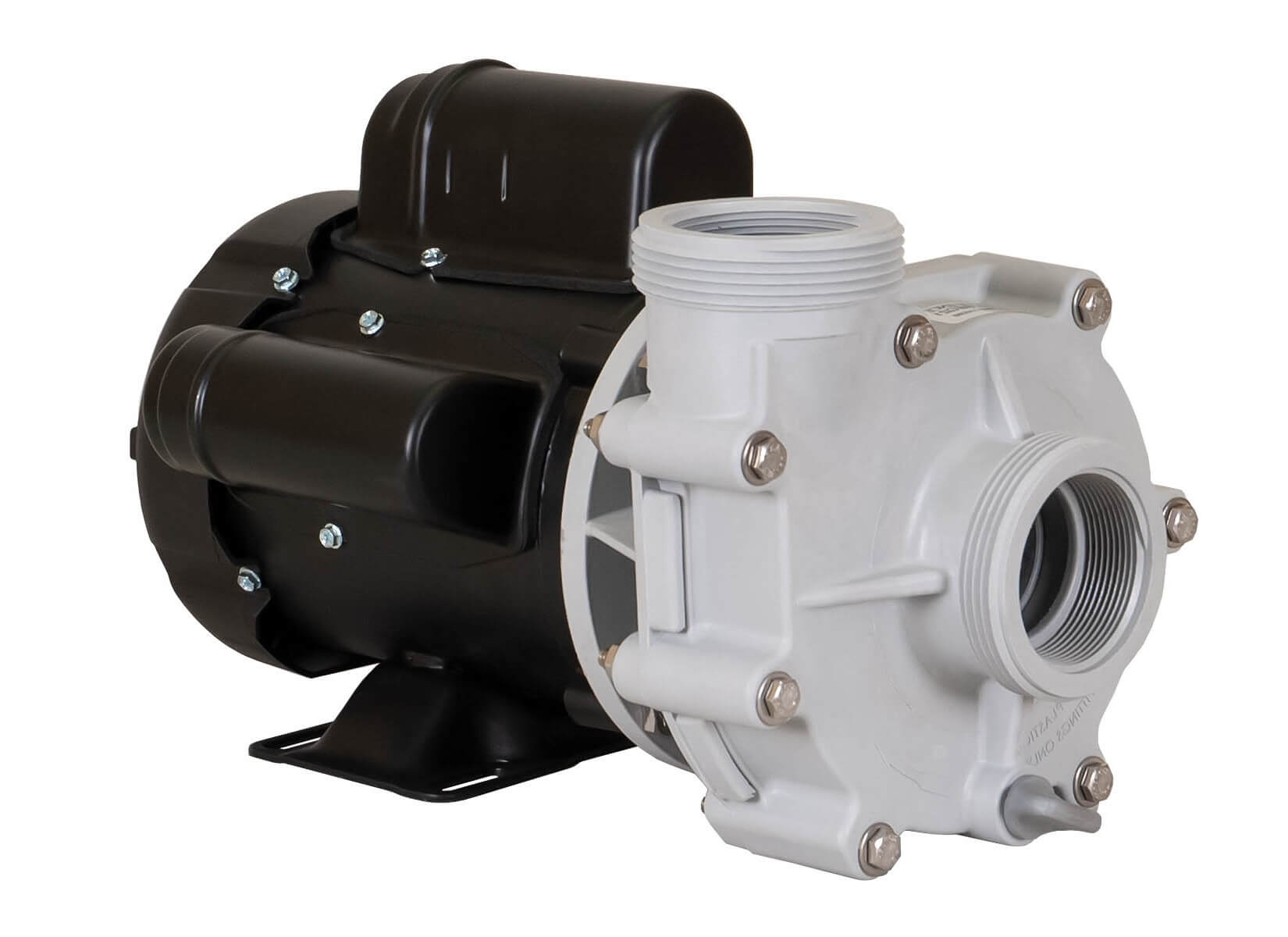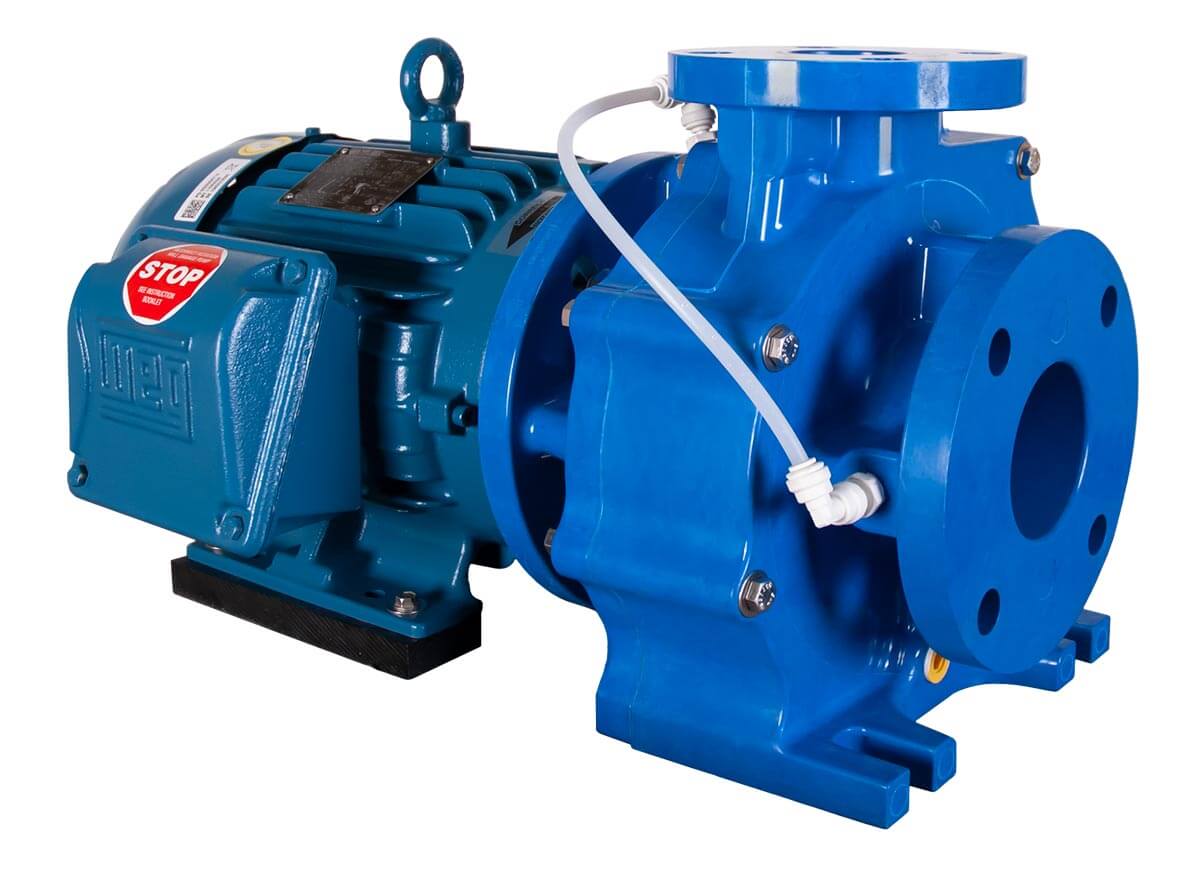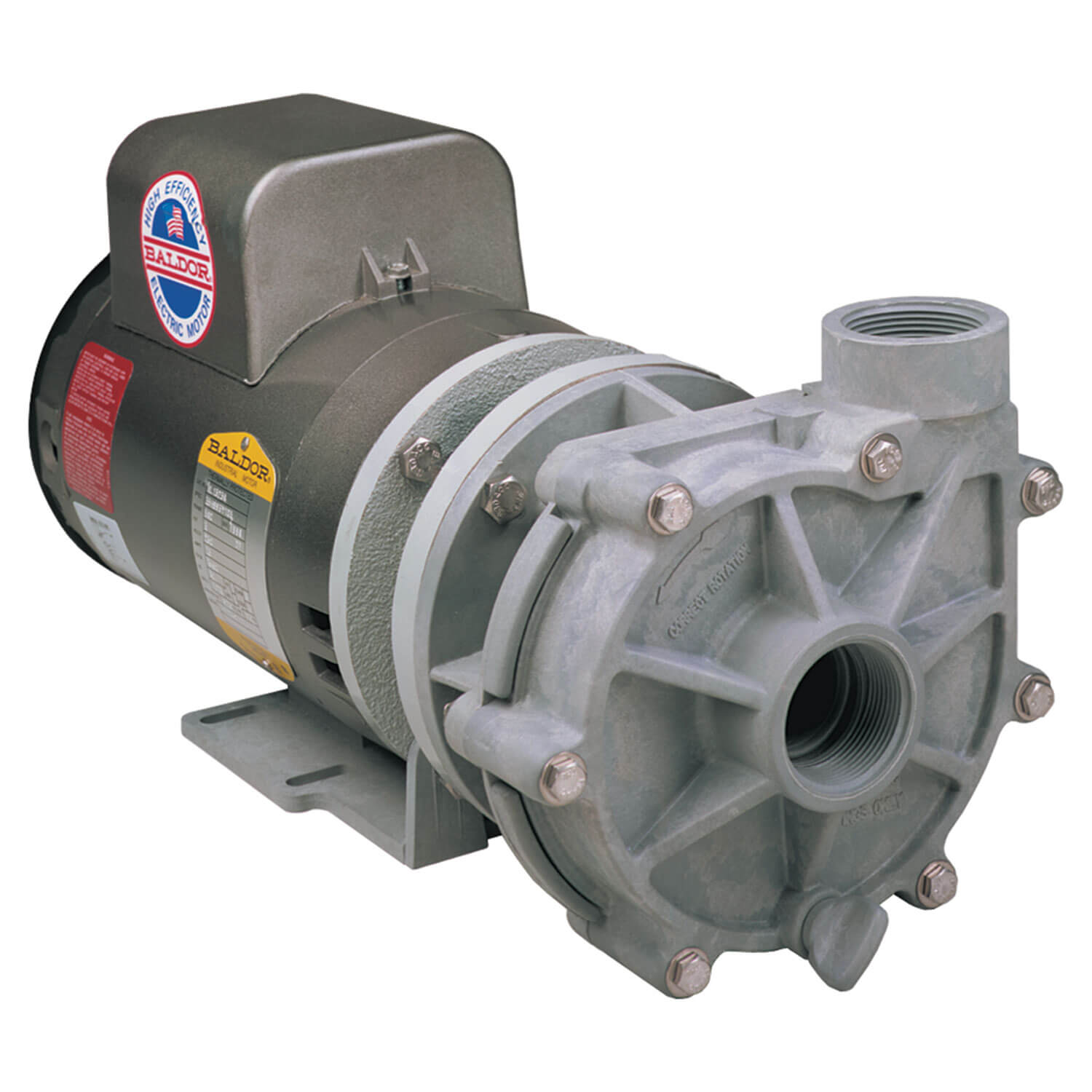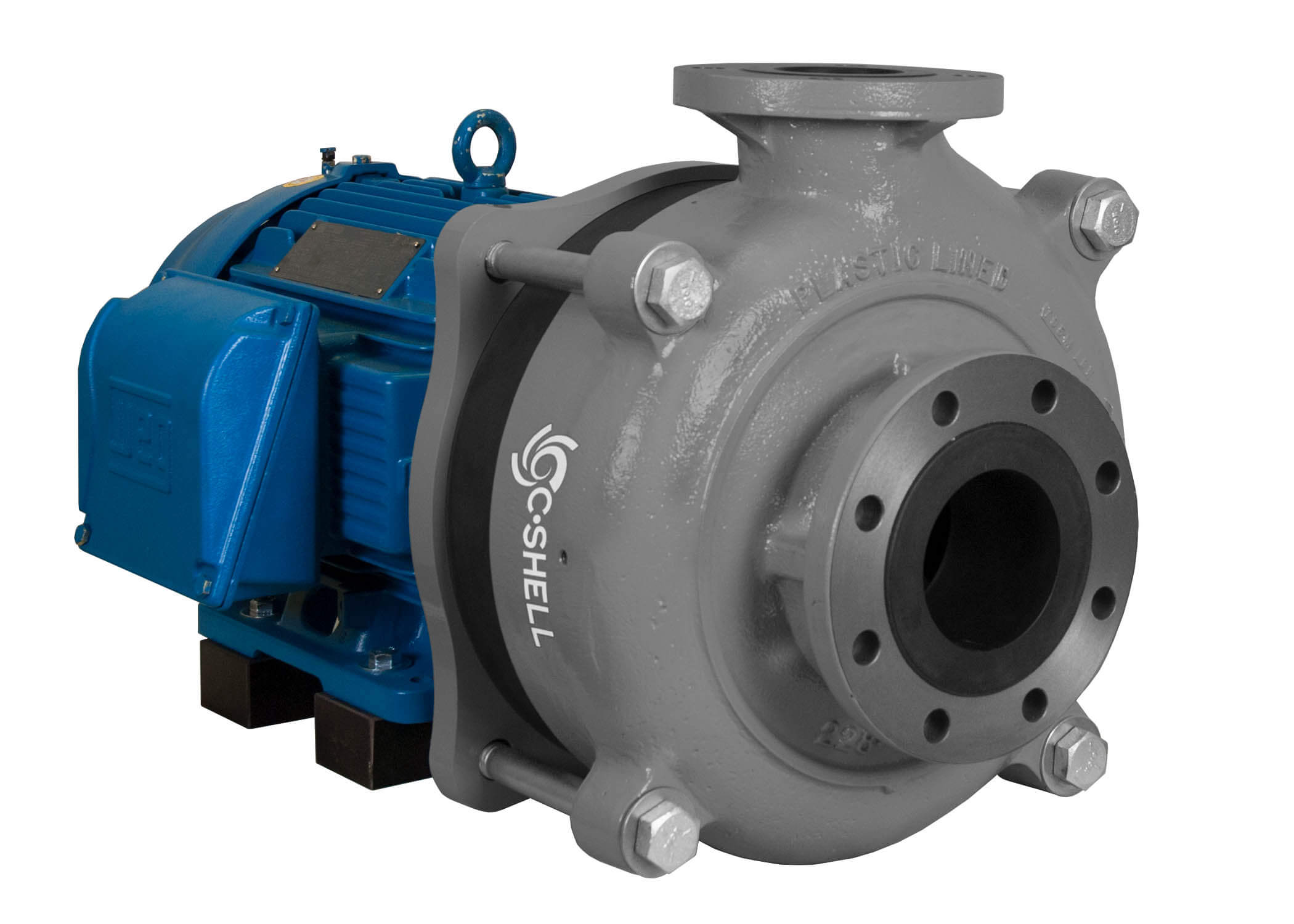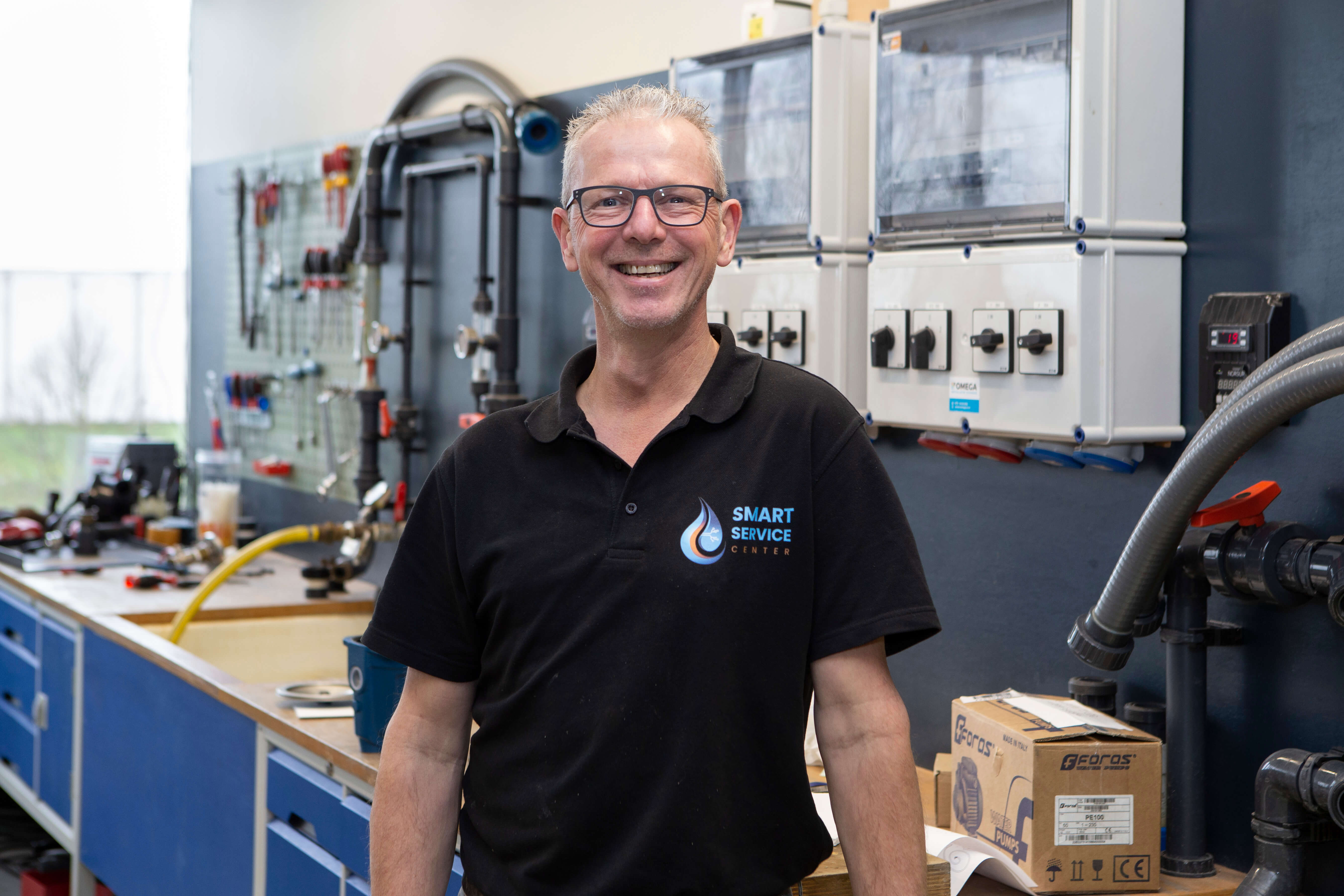Save energy with sustainable customisable pumps by MDM
MDM Inc. products fit the mission of Bosta - to make aquaculture processes more sustainable, efficient, and still profitable for our customers. MDM pumps fits these factors perfectly.
It is a unique brand, offering many benefits:
- Customisable
- Energy efficient
- Low total cost of ownership
- Low life cycle cost
- Aggressive media resistance
- Simplicity of design
- Few components
Sequence® Pumps
Sequence pumps are the leader in high efficiency and performance. Their longevity is legendary, and they can serve a wide variety of water transfer and re-circulation applications. They are designed to operate efficiently over a wide range of flows and pressures. In larger systems, you can use two or more Sequence pumps in parallel to multiply your flow, and can also be customized for saltwater use. Conducive for installations near areas of relaxation and entertainment, Sequence pumps generate minimal noise levels.
- Water Gardens
- Koi Ponds
- Aquaculture
- Water Features
- Irrigation Hobbyist
- Aquarium Hobbyist
- Hydroponics/Aquaponics Solar/Off-Grid
Genesys® Pumps
Built with non-metallic thermoset parts and enclosed impellers. Genesys has a simple and strong design that makes it the perfect product for those in between size jobs where you don’t want to go too light or heavier than necessary. The wet-end design allows for fast in-field assembly and maintenance. Efficiency is high, operational cost is low, quality is top notch. Attention to detail is where we have built our reputation. Applications are suited for Industrial Chemical Process, Wastewater Treatment and Commercial Aquaculture.
- Industrial Chemical Processing
- Wastewater Treatment
- Aquarium Life Support
- Aquaculture
- Commercial Water Gardens
- Compatible replacement for ANSI/ASME 2-3-6 B73.1 pumps
Advance Pumps
The Advance pump series is one of the most efficient and adaptable centrifugal pumps of its kind. With an evenly balanced delivery of flow and pressure, the design of the pump, coupled with the chosen resins, produces a strong, durable, versatile unit that allows a broad range of applications.
- Chemical Process Fluids
- Plating Chemical Transfer & Recirculation
- Laser Coolers
- Fume Scrubbers
- Waste Water Reclamation
- Filtration Systems
- Pollution Control Equipment
- De-ionized Water Transfer
- Pressure Spray Systems
- Fountains
C•Shell® Pumps
The C•Shell pump series is MDM’s new horizontal centrifugal lines product family designed for use in the Chemical Process Industry (CPI) and corrosive fluid handling markets. They consist of metallic cast pump shells with a thermoset polymer non-metallic lining. C•Shell products have been designed to offer the highest efficiencies, lowest maintenance cost and longest life – for the lowest total cost of ownership. Oversized volutes offer high flows at low rotational speeds for nearly silent operation.
- Chemical Process
- Wastewater Treatment
- Desalination
- Public Aquarium
- Life Support Systems
- Recirculating Aquaculture Systems – RAS
- Sea Water Intake Systems
- De-Watering/Environmental
- Fume Scrubbers


Learn more about MDM
Multi-Duti Manufacturing, Inc. (MDM Pumps) has intensely cultivated its SEQUENCE® and ADVANCE brand names since 1978. The names have come to mean high quality and innovation at a reasonable price within several pump market segments; Industrial, Commercial, and Consumer. The addition of trademark names like VALUFLO®, GENESYS®, and C-Shell® is a testament to an ongoing commitment to innovation and product development.Trome, MDM's distrubutor
Sustainablity of MDM
The design and manufacture of MDM pumps is done with a focus on reducing the environmental impact of pumping operations. This includes reducing energy consumption, using eco-friendly materials, minimising waste, and improving the longevity of the pump.
Sustainability in pumps also takes into account the social and economic impact of pumping operations. By investing in sustainable pumps, individuals and organisations can reduce their carbon footprint, save on energy costs, and contribute to a more sustainable future. Sustainability in pumps is an important consideration for those looking to implement eco-friendly solutions and make a positive impact on the environment. This goes hand-in-hand with our CSR-strategy
Customisable to your needs
MDM offers the ability to tailor the pump to meet the specific needs of the user. This can include changes to the size, capacity, materials, and performance of the pump. This offers the ability to personalise a pumping solution to achieve greater efficiency and effectiveness. This makes any pump unique, offering great flexibility and versatility.
Customisability is an important factor for many organisations, as it enables them to maximise investment in pumping technology and achieve goals more effectively. Whether you need a pump for a specific application or require a pump that can adapt to changing needs, customisability is a key consideration.
Smart Service Centre
MegaGroup Smart Service Center will make a difference for you! Our team has in depth know-how about pumps used in various industries. We know everything about pump types, materials, performance specifications, and application areas. Our mission is to help users find the most suitable pump for their specific needs and applications. We make it easy for you to compare and choose the right pump. We are happy to provide technical information and guidance to help users make cautious decisions about pumping needs. MegaGroup Smart Service Team plays an essential role for anyone involved in the procurement, maintenance, or operation of pumps in various industries.
Frequently asked questions
How will energy be saved by MDM pumps?
- Energy Efficiency: Sustainable pumps are designed to use less energy than traditional pumps. This is achieved through advanced engineering techniques, such as reducing friction in the pump, optimising flow rates, and using energy-efficient motors.
- Power Management: Sustainable pumps may also feature power management systems that automatically adjust the pump's energy consumption based on demand. This helps to reduce energy waste and lower energy costs.
- Efficient Performance: Sustainable pumps are designed to be more efficient and effective, reducing the energy required to pump a given volume of fluid. This is achieved through features such as optimised impellers, improved seals, and advanced flow control systems
- Low Maintenance: Sustainable pumps are designed to require minimal maintenance, reducing the need for frequent replacements and reducing the energy required to maintain the pump over its lifetime.
What is the expected total cost of ownership (TCO)?
- Purchase price: The initial cost of the pump.
- Installation costs: Any costs associated with installing the pump, such as labour, equipment rental, and materials.
- Energy costs: The cost of the energy required to run the pump over its lifetime.
- Maintenance costs: The cost of maintaining the pump, including regular service and any repairs or replacements required over its lifetime.
- Disposal costs: Any costs associated with disposing of the pump at the end of its life.
Will the product fit my application?
- Flow rate: The flow rate required by the application should match the flow rate capacity of the pump.
- Pressure: The pump should be capable of delivering the required pressure for the application.
- Temperature: The pump should be able to handle the temperature range of the fluid being pumped in the application.
- Compatibility: The pump materials should be compatible with the fluid being pumped and the application environment.
- Duty cycle: The pump should be able to handle the application's duty cycle (continuous or intermittent).
- Size and dimensions: The pump should fit in the application, both physically and in terms of its performance characteristics.
What makes the products sustainable?
- Energy Efficiency: Sustainable pumps are designed to use less energy than traditional pumps, reducing their impact on the environment and lowering energy costs.
- Durability: Sustainable pumps are designed to last longer and require less maintenance, reducing the need for frequent replacements and reducing waste.
- Recyclability: Many sustainable pumps are made of recyclable materials, reducing their environmental impact and contributing to a circular economy.
Are the pumps aggressive media resistant?
Frequently asked questions
- Energy Efficiency: Sustainable pumps are designed to use less energy than traditional pumps. This is achieved through advanced engineering techniques, such as reducing friction in the pump, optimising flow rates, and using energy-efficient motors.
- Power Management: Sustainable pumps may also feature power management systems that automatically adjust the pump's energy consumption based on demand. This helps to reduce energy waste and lower energy costs.
- Efficient Performance: Sustainable pumps are designed to be more efficient and effective, reducing the energy required to pump a given volume of fluid. This is achieved through features such as optimised impellers, improved seals, and advanced flow control systems
- Low Maintenance: Sustainable pumps are designed to require minimal maintenance, reducing the need for frequent replacements and reducing the energy required to maintain the pump over its lifetime.
- Purchase price: The initial cost of the pump.
- Installation costs: Any costs associated with installing the pump, such as labour, equipment rental, and materials.
- Energy costs: The cost of the energy required to run the pump over its lifetime.
- Maintenance costs: The cost of maintaining the pump, including regular service and any repairs or replacements required over its lifetime.
- Disposal costs: Any costs associated with disposing of the pump at the end of its life.
- Flow rate: The flow rate required by the application should match the flow rate capacity of the pump.
- Pressure: The pump should be capable of delivering the required pressure for the application.
- Temperature: The pump should be able to handle the temperature range of the fluid being pumped in the application.
- Compatibility: The pump materials should be compatible with the fluid being pumped and the application environment.
- Duty cycle: The pump should be able to handle the application's duty cycle (continuous or intermittent).
- Size and dimensions: The pump should fit in the application, both physically and in terms of its performance characteristics.
- Energy Efficiency: Sustainable pumps are designed to use less energy than traditional pumps, reducing their impact on the environment and lowering energy costs.
- Durability: Sustainable pumps are designed to last longer and require less maintenance, reducing the need for frequent replacements and reducing waste.
- Recyclability: Many sustainable pumps are made of recyclable materials, reducing their environmental impact and contributing to a circular economy.




